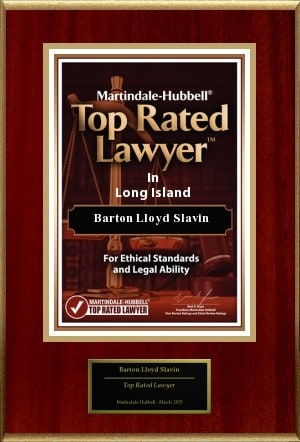 A Last Will and Testament is a legal document that contains a statement of how a person wants his or her property to be distributed after they die. Ideally, the statement contained within the Will should contain detailed and clear instructions that allow the intent of the decedent to be correctly carried out. Without an executed and properly recorded Will, the intent or wishes of the decedent play no role in the distribution of their property. Instead, a person without a will is said to have died, intestate, and property is formulaically distributed under New York Estates, Powers and Trust Laws (EPTL).
A Last Will and Testament is a legal document that contains a statement of how a person wants his or her property to be distributed after they die. Ideally, the statement contained within the Will should contain detailed and clear instructions that allow the intent of the decedent to be correctly carried out. Without an executed and properly recorded Will, the intent or wishes of the decedent play no role in the distribution of their property. Instead, a person without a will is said to have died, intestate, and property is formulaically distributed under New York Estates, Powers and Trust Laws (EPTL).
The formula is wholly dependent on which blood relatives survive the decedent. For example:
- If the decedent has a spouse and no children, then the spouse inherits everything.
- If the decedent has children, but no spouse, then the children inherit everything.
- If the decedent has both a spouse and children, then the spouse inherits the first $50,000 along with half of the balance. The children inherit the remaining balance divided among them.
- If the decedent has parents, but no spouse and no children, then the parents inherit everything.
- If the decedent has siblings, but no spouse, children, or parents, then the siblings inherit everything.
- If the decedent has no family at all, then the property will go to the State of New York.
Intestacy is particular problematic when dealing with property passing from the decedent to their children. For example, when a child of the decedent predeceases the decedent, the portion of their inheritance will not go to the spouse of the predeceased child, but will be split among the predeceased child’s children (the decedent’s grandchildren), if there are any. Additionally, New York State intestacy laws only protect children where there is a “legal parent-child relationship.” This means that even if the decedent fully accepted his or her stepchildren into the family, these stepchildren will not receive any inheritance unless they were legally adopted by the decedent. Another problem, is that without a will, a minor may come into an inheritance before they are competent enough to control this. Without a will to set up a trust, or other protections, there is no way to ensure the property of the estate will be protected until a minor heir is viewed responsible enough to take control of his or her share.
If you need any additional information regarding estate planning or require the help of an Estate Lawyer in Orange County, NY or surround areas, please contact: Barton Slavin, Esq. of Slavin & Slavin, Esqs. at (212) 233-1010.
With over thirty three (33) years as a practicing attorney Barton L. Slavin, Esq. leads a staff and network of experienced attorneys that meets both corporate and personal legal needs.
Contact Barton Slavin, Esq. of Slavin & Slavin, Esqs. at (212) 233 -1010 or send an email to barton@nycattorneys.com. Consultations are free.
We work hard to make sure that all of your concerns are properly addressed and that your matter is resolved in a timely manner. Slavin & Slavin Attorneys at Law
What makes Barton L. Slavin different from other attorneys is that he has an in-depth knowledge of the medicine and an understanding of effective communication methods to present a case to the jury in the Courtroom or the Mediator in a settlement meeting.
Your case will be prepared with the guidance and advice of Hon. Joseph Slavin, who as a Trial Judge for 20 years presided over approximately 1,000 Jury Trials (Medical Malpractice, Tort, Felony Criminal Cases including Homicide and Drug Cases).
Barton L. Slavin received an AV Rating of Very High / Pre-eminent Martindale Hubbell Lawyer Rating. This is the highest ranking, which signifies that the lawyer has reached the heights of professional excellence.








Leave a Reply
You must be logged in to post a comment.